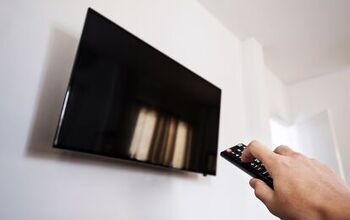Gas Grill Safety Tips And Precautions

Many people prefer gas grills over electric grills, and that’s understandable. However, there is an added level of risk that comes along with using a gas grill. That’s why we put together a thorough list of gas grill safety tips to keep you safe this summer.
Clean your gas grill after each use to reduce the risk of dangerous grease fires in your yard. Keep your grill at least 10 feet away from any structure, such as your home or a shed. Never use a gas grill indoors or under a deck, as smoke inhalation is dangerous, and there is a big fire risk.
Don’t worry that your gas grill is some kind of death trap. However, it’s important to at least understand the risks. Follow along as we highlight the most important gas grill safety tips and precautions.
Nine Essential Gas Grill Safety Tips
1. Inspect Your Tanks And Grill
Gas tanks and lines aren’t invincible, and leaks can occur. Unfortunately, a gas leaks can cause a dangerous fire that could spread quickly and burn nearby structures. This can cause devastating damage and even fatalities in some cases.
You must check your gas lines and tanks for leaks before you turn on your grill. Spray a mixture of water and dish soap on the line and tank. You can tell there is a leak if the solution starts to bubble, as that indicates the presence of gas.
In that case, you must ditch your plans for the day and avoid using your gas grill. You can replace a grill’s gas line for $15 to $25 per linear foot. Naturally, the cost varies based on how long the gas line is. Replacing leaky tanks is much cheaper.
2. Pick A Safe Location
You should never run a gas grill right next to your house. Ideally, you should run your gas grill at least 10 feet away from your home and any nearby structure, such as a shed. You must also make sure there aren’t any combustible materials near your gas grill before you fire it up.
That includes sticks, leaves, logs, outdoor furniture, and even your deck railing. It’s also important to set your grill up on a flat surface to ensure it is even and doesn’t roll around. Otherwise, it will be much harder to control and contain your grill.
Sweep the area around your gas grill before you set it up. That’s especially true during the autumn when fallen leaves and twigs are everywhere.
3. Supervise It
Leaving a gas grill unsupervised is a recipe for disaster. One person can operate a grill without any help in many cases, however, you should have someone nearby who can relieve you and watch the grill if you must take a break.
The presence of gas means that things can go from bad to worse in seemingly no time. Luckily, gas grills undergo a rigorous inspection process before hitting the market. Even still, it’s better to be safe than sorry, so keep your eyes on it.
4. Keep A Fire Extinguisher Handy
Every homeowner should have at least one fire extinguisher in the house. Not only can it save lives and your house, but it's also cheap and easy to use. You should always keep a fire extinguisher nearby when you use a gas grill.
Both gas and foam fire extinguishers are effective for putting out fires. However, foam is the better option when it comes to putting out fires caused by flammable liquids and gases. The foam creates a film that makes extinguishing gas and grease fires much easier.
Teach yourself how to use a fire extinguisher when you buy one. That will come in handy if you ever have to use it. Simply follow the instructions on the label or research it online to prepare yourself.
5. Dress For Safety
It’s all too easy to take every safety precaution but still wear the wrong fire safety outfit. Long, dangling articles of clothing can easily catch on fire while you're grilling. Ideally, you should wear a short-sleeved shirt when you use a gas grill.
At least roll your sleeves up to protect yourself if you wear a long-sleeved shirt or hoodie. You should also avoid wearing dangling jewelry, like long necklaces. Pretend that anything that touches the grill will catch on fire.
6. Keep Your Pets Away From The Grill
Everyone loves to spend time outside with their pets, especially during the spring, summer, and early fall. However, you must consider the dangers of having your dogs near your gas grill. Dogs get quite excited, and the scent of meat and grease is enough to get them started.
Ideally, you should isolate your pets in a separate area away from your gas grill. The last thing you want is for them to get too close to the grill and get burned. Even worse, some dogs can jump up on the grill and suffer serious burns.
One way to protect your pets is to set up some pet gates in your backyard, so they can’t access the grill. Otherwise, you can put a leash on them and tether them to a nearby tree or post. Give them enough freedom to have fun without reaching the grill.
7. Spray The Grill With Water As Needed
Parts of your gas grill may briefly catch fire as you cook meat. The mixture of heat and grease can cause bursts of fire in greasy sections. That’s why it’s a great idea to keep a spray bottle filled with water nearby to extinguish small fires as needed.
These types of fires don’t necessarily always spread like crazy. However, it’s better to be safe than sorry, so don’t be afraid to spray your grill occasionally. You won’t ruin the meat and vegetables, so there’s nothing to worry about.
8. Routinely Clean Your Grill
Dirty grills are dangerous in more ways than you may think. Sure, you have sanitary risks, such as E. coli and other contaminants. However, the fire risk is arguably even worse, as the grease on your gas grill can easily catch fire.
Grease fires are notoriously dangerous and can spread quickly. You must clean your grill after each use to reduce the risk of grease fires. Of course, you should wait until your grill cools down before you clean it.
There is also a risk that you’ll attract animals to your grill if it’s dirty. The last thing you want to do is find animal droppings on your gas grill. Even worse, you may not realize that animals have visited your grill until you get sick after eating a burger or hot dog.
9. Use An Open Space
It may be tempting to grill under your deck or in your garage, but that’s a bad idea. That’s because there is practically no way to avoid inhaling thick smoke due to the lack of ventilation. It’s much safer to simply grill in an open area with no roof and walls.
Grilling in an enclosed space carries a major fire risk, and the smoke inhalation can cause permanent damage. That’s especially true if you have asthma, COPD, or emphysema.
Are Gas Grills More Dangerous Than Electric Grills?
Gas grills are more dangerous than electric grills because of the greater fire risk. However, both gas and electric grills carry a serious fire risk. The biggest difference is that electric grills don’t rely on an accelerant to generate heat.
Granted, you can still get burned if you put your hand on an electric grill. You can also catch on fire if you wear long, dangling clothes that touch the top of the grill. Electric grills are still much safer if you want to get more peace of mind.
Summing It Up
You must inspect your gas grill lines and tanks for leaks using a solution of water and dish soap before cooking. It’s also important to place your grill on a flat, even surface in a well-ventilated area. Clean your grill after each use to remove grease, and keep a fire extinguisher nearby.
Related Guides:

Nick Durante is a professional writer with a primary focus on home improvement. When he is not writing about home improvement or taking on projects around the house, he likes to read and create art. He is always looking towards the newest trends in home improvement.
More by Nick Durante










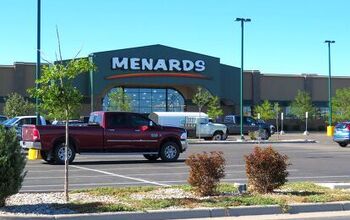
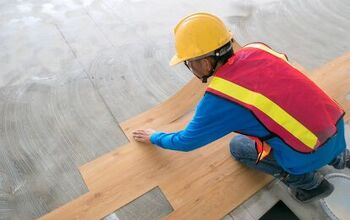
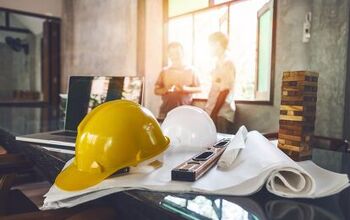
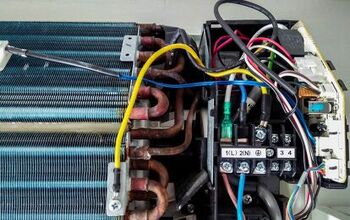
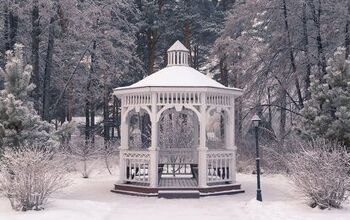
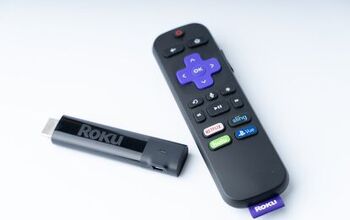
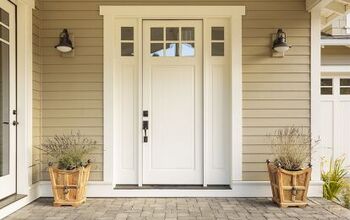
![Standard Dining Room Table Dimensions [for 4, 6, 8, 10 and 12 People]](https://cdn-fastly.upgradedhome.com/media/2023/07/31/9074335/standard-dining-room-table-dimensions-for-4-6-8-10-and-12-people.jpg?size=350x220)
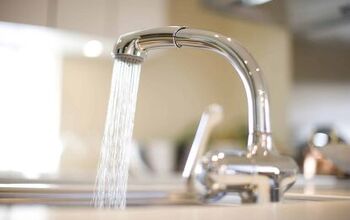
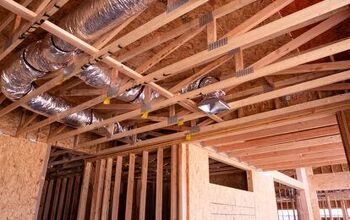
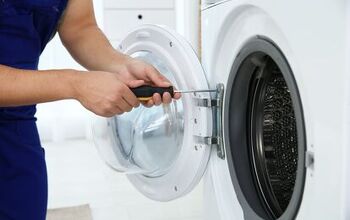
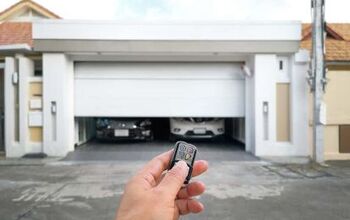
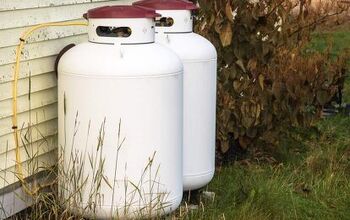
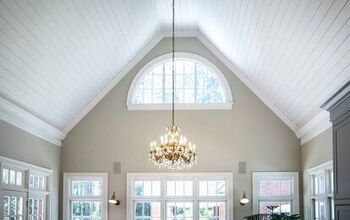
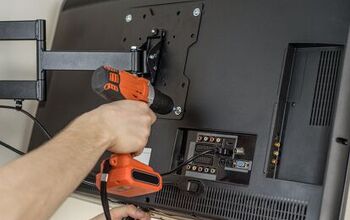

![12 Washing Machine Brands to Avoid [with Recall Data]](https://cdn-fastly.upgradedhome.com/media/2023/07/31/9075781/12-washing-machine-brands-to-avoid-with-recall-data.jpg?size=350x220)
